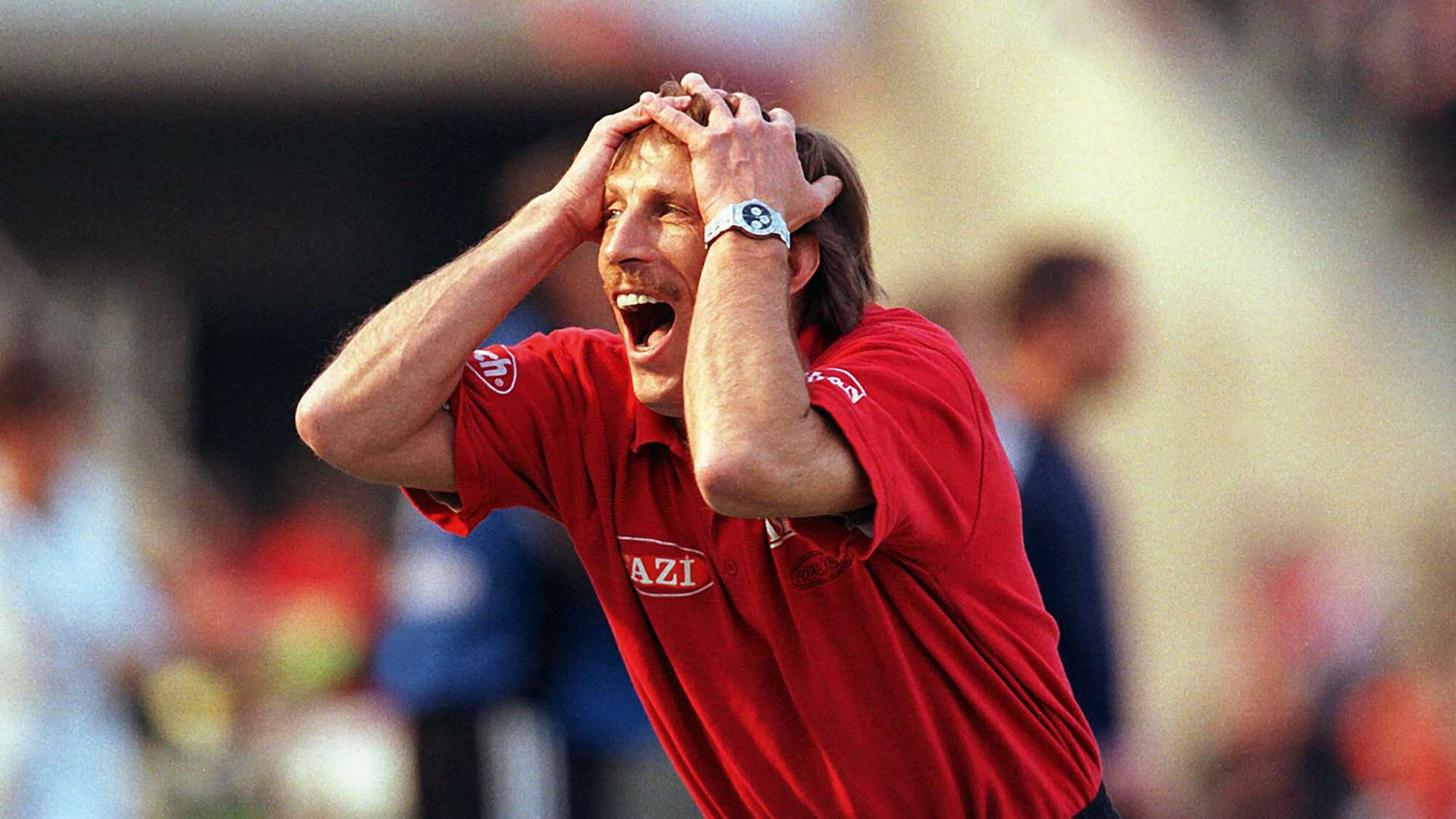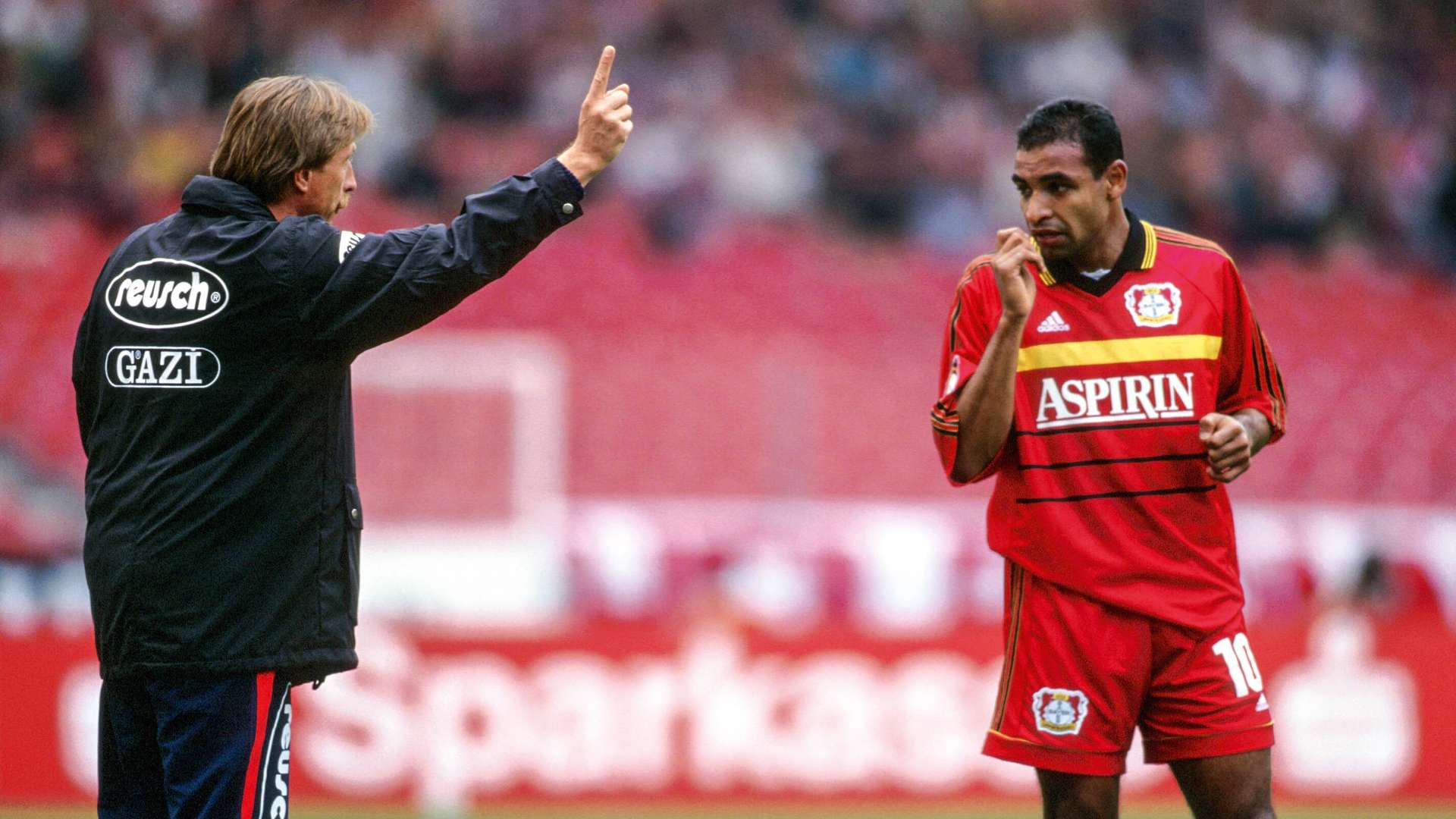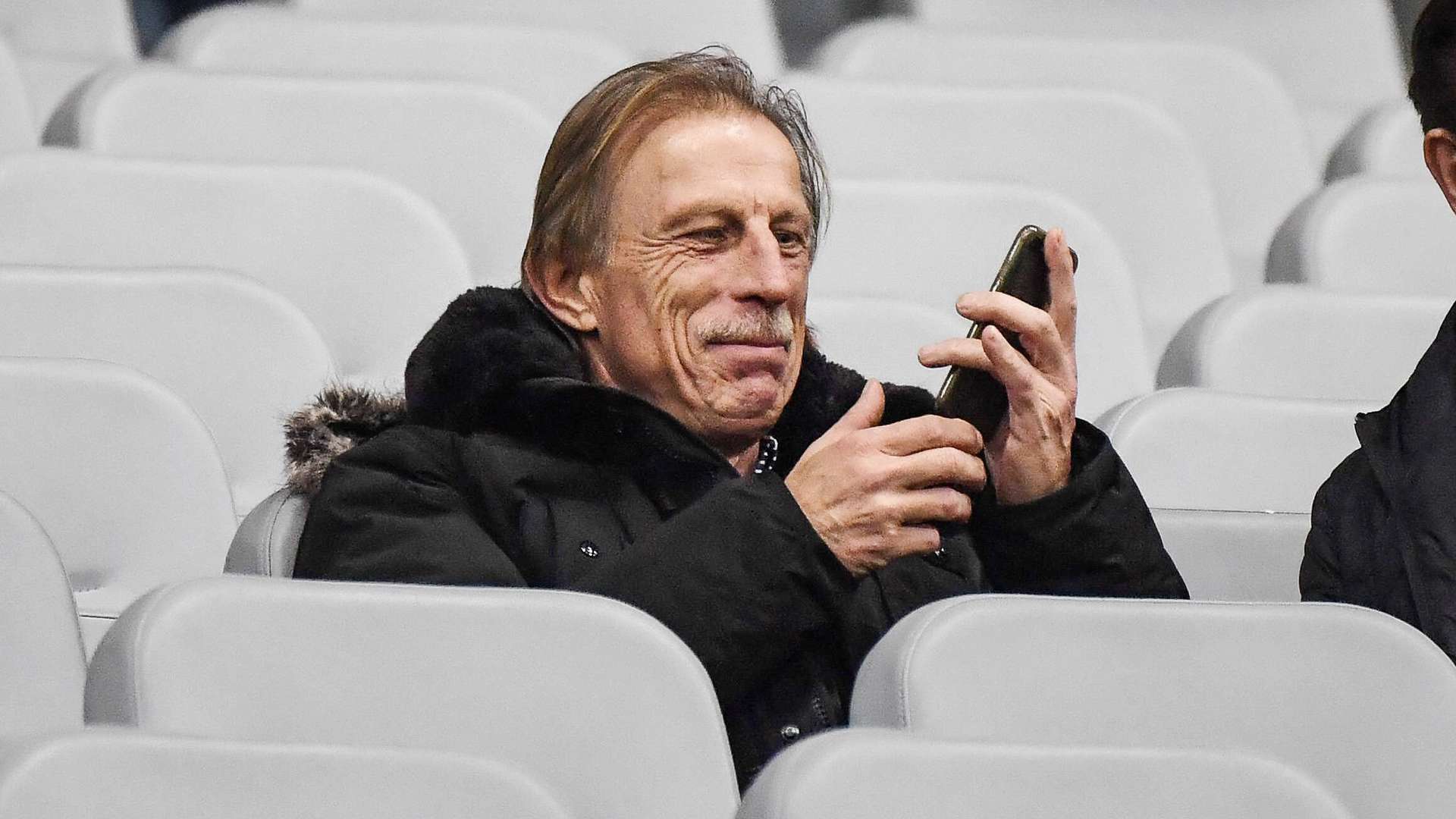'I cried my eyes out'
– Christoph Daum

„Together we created a new image for the Werkself

Committed and emotional on the touchline: Christoph Daum rarely sat on the bench.

"A great player and incredible strategist," said Christoph Daum about the Brazilian Emerson.
„Rüdiger Vollborn was a godsend for us

Inconsolable: Christoph Daum commiserates with his son Marcel after the game at Unterhaching.
„It was like going to a championship celebration

Christoph Daum on a visit the BayArena in November 2018.
